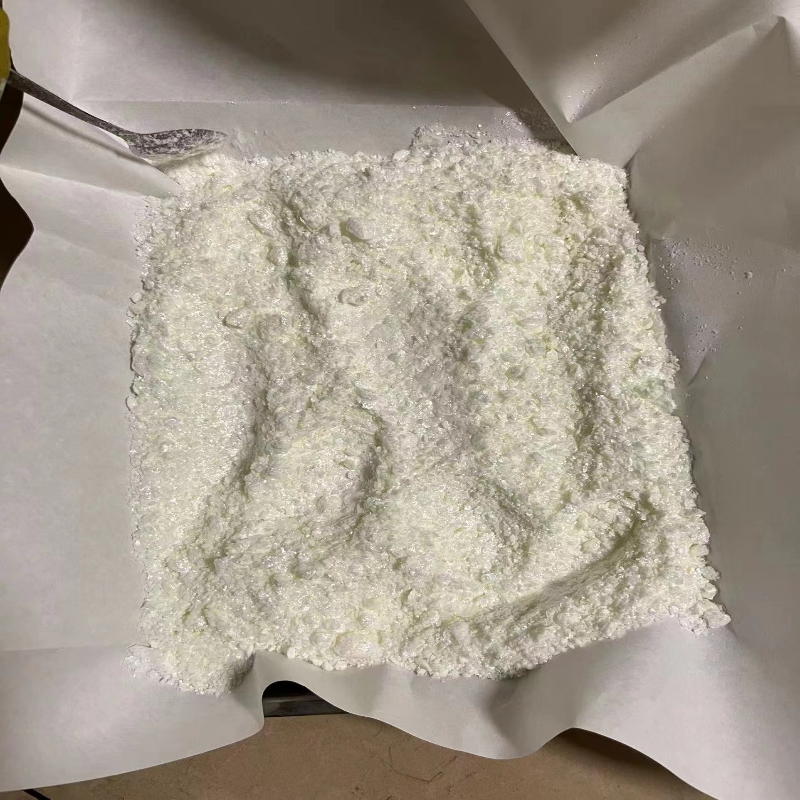-
Categories
-
Pharmaceutical Intermediates
-
Active Pharmaceutical Ingredients
-
Food Additives
- Industrial Coatings
- Agrochemicals
- Dyes and Pigments
- Surfactant
- Flavors and Fragrances
- Chemical Reagents
- Catalyst and Auxiliary
- Natural Products
- Inorganic Chemistry
-
Organic Chemistry
-
Biochemical Engineering
- Analytical Chemistry
-
Cosmetic Ingredient
- Water Treatment Chemical
-
Pharmaceutical Intermediates
Promotion
ECHEMI Mall
Wholesale
Weekly Price
Exhibition
News
-
Trade Service
At the 13th Gulf Petrochemicals and Chemicals Association (GPCA) Supply Chain Conference held in Dubai on May 19, speakers agreed that the future petrochemical and chemical supply chain needs to be more Sustainable and more resilient to prepare for and mitigate future supply disruptions
.
The pandemic that began in 2020, the threat of climate change since the turn of the century, the shockwaves that geopolitical conflict is now sending to global supply chains, the threat posed by changing existing logistics models, high-profile business leaders beware and adopt new ways of thinking
.
Here are the main highlights of the GPCA event taking place May 17-19 at the Hilton Dubai Al Habtoor City Hotel in Dubai, UAE
.
Saleh Al-Suwaiti, CEO of FAHSS-TUV and Chairman of the GPCA Supply Chain Committee, said in his welcome remarks on the first day: "The crisis brought about by the pandemic has forced businesses to shift their focus to innovation and restructuring efforts by building resilience and flexibility.
to ensure business continuity
.
”
Supply chain decarbonization
Supply chain decarbonizationDecarbonisation of petrochemical and chemical supply chains is now at the forefront of discussions, Al-Suwaiti added, as both governments and businesses pledge to support carbon neutrality
.
Al-Suwaiti set the tone for the discussion, with 29 leading industry experts sharing their insights as part of the event's theme - "Supply Chains of the Future: Now"
.
At the event's first executive panel meeting, Saudi Railways (SAR) and Sadara Chemicals pointed to the importance of ensuring supply chain reliability and establishing a robust intermodal transport system
.
They added that the GCC railway project is expected not only to improve the supply chain system as a whole, but to do so in a more efficient and sustainable way, with significant reductions in emissions
.
intellectual assets
intellectual assetsDuring the plenary session on the first day, Esam Khoori, Executive Director of Container Terminals at Emirates World Ports, told the audience: "As we move from two years of chaos, we have found that intellectual assets are what drives business success
.
" He called for a more A more connected, more collaborative and more responsible industry, adding: “The petrochemical and chemical industries will benefit greatly from improved industry-wide cooperation
.
”
The second day's presentation continued to highlight the need for sustainability in chemical supply chains
.
In his welcome remarks, Aslam Moola, Director of Commercial and Business Development, Middle East, Vopak, Netherlands and Vice Chairman of the GPCA Supply Chain Committee, praised new energy storage and transport solutions, such as the GCC railway, for supply chain and logistics in the region brought about transformational changes
.
GCC Customs Union Director Mutlaq Bin Saad Al-Mutlaq delivered a keynote speech on the last day of the conference
.
He started by outlining the opportunities to promote intra-GCC trade within the framework of the GCC customs union
.
He also gave an update on the GCC's work in this regard, and concluded by emphasizing that this important initiative is crucial to the socio-economic interests of member states in the region
.
Chemical Supply Chain
Chemical Supply ChainDr.
Abdulwahab Al Sadoun, Secretary General of the GPCA, commented: “The chemical supply chain is operating in an increasingly complex environment where global forces are beyond the control of the chemical industry
.
From the impact of geopolitical tensions to the ongoing pandemic, the With rising global protectionism and nearshoring in many countries around the world, supply chain leaders are facing a challenging task - planning and preparing for a future that may be radically different from the present reality and increasingly The harder it is to predict
.
So being proactive and nimble will be some of the key factors in helping companies protect against future risks
.
”
Dr Sadoun said: “On the other hand, critical needs – such as being close to customers, adopting supply chain digitisation, adopting a sustainable and genuine understanding of the impact of the Environmental, Social and Governance (ESG) agenda – mean that businesses can no longer wait for these The trend is coming
.
“They are right on the doorstep and are already transforming the chemical industry’s supply chain
.
To remain competitive, leaders in the chemical industry must capitalize on future opportunities to increase their agility, collaborate with customers and partners, and make the right investments through the right investments.
and technology to reduce their impact on the environment
.
Ultimately, they must focus on developing their talents, using the skills they need to solve challenges they haven’t yet faced
.
”







